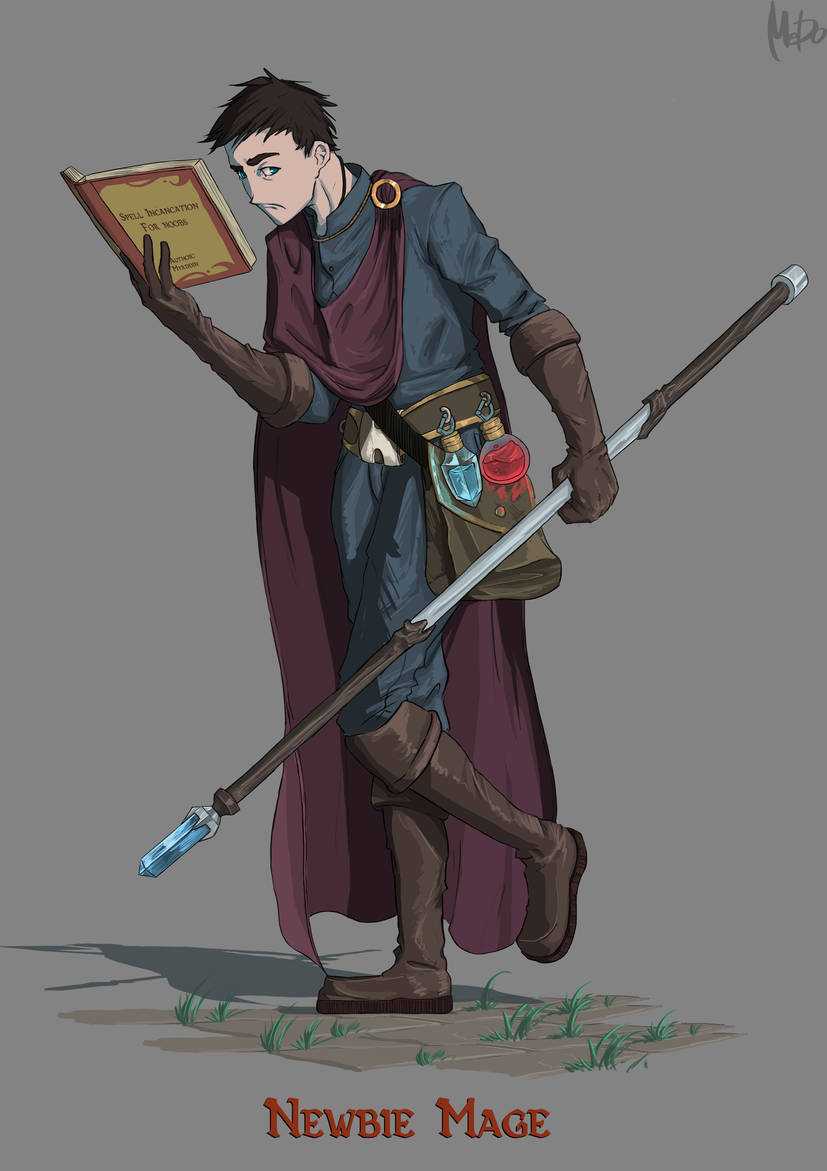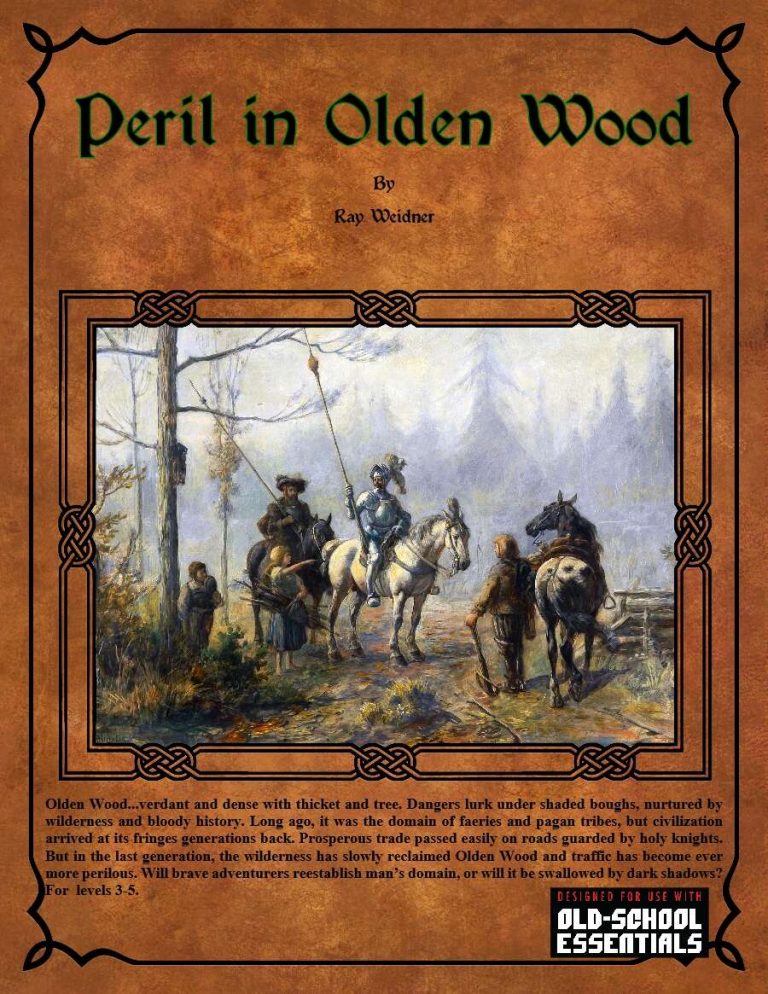Loyal readers, I've been involved in various online discussions over the last month about what the OSR actually is. Surely, this is a novel topic which has never been discussed before, as opposed to being a subject for never-ending reexamination. Never let anyone tell you that tabletop role-gamers are mere navel-gazing sophists!
Yes, well. In all seriousness, I've seen one particular bubble of discontent that has been recurring of recent; not quite a froth, but a zesty effervescence, if you will. And I think good points are being made. It is best summarized thusly: the founding principles of the OSR are wildly overstated.
This strikes me as humorous argument because the backlash against this overstatement is itself often overstated. But there is some truth to this contention. Let's look at those foundational principles, the history that motivated them, and see if we can reframe the OSR from a fresh perspective.
History of the OSR
Forgive me, but I'm going to gloss over a lot of nerd history here. Anyway, the story goes something like this:
The third edition of D&D came out in 2000. Immediate discontent materialized within the grognardarium. This was no longer D&D, and something was lost. The old-schoolers went underground for a while, maintaining their ancient traditions in hidden corners like Dragonsfoot. Eventually, they boiled forth from the Underdark with a new banner: OSR.
Who coined the term? My understanding is that it was first used formally in the promotional materials for the first issue of Fight On!, but this may have in turn evolved out of Matthew Finch's famous tract Quick Primer for Old School Gaming. Indeed, many of the edicts which we will soon discuss come directly from this work.
To summarize: the OSR appeared as a reaction to and against post-second edition D&D. The fourth edition probably only strengthened the movement. I'm not even going to begin to talk about the (still ongoing) relationship between the OSR and fifth edition.
The Principles
Better settle in...
I'll be relying on two works which had a lot of influence in establishing the culture of the OSR: the aforementioned Quick Primer for Old School Gaming, and the equally-beloved Principia Apocrypha.
Here are the edicts from the Primer, aka the four "Zen Moments":
- Rulings, not Rules
- Player Skill, not Character Abilities
- Heroic, not Superhero
- Forget “Game Balance”
And from the considerably more long-winded Principia:
- Be an Impartial Arbiter
- Rulings Over Rules
- Divest Yourself Of Their Fate
- Leave Preparation Flexible
- Build Responsive Situations
- Embrace Chaos...
- ...But Uphold Logic
- Let Them Off The Rails
- Get Them Thinking
- XP For Discovery & Adversity
- Player Ingenuity Over Character Capability
- Cleverness Rewarded, Not Thwarted
- Ask Them How They Do It
- Let Them Manipulate The World
- Good Items Are Unique Tools
- Don't Mind The Fourth Wall
- Build Rocks & Hard Places
- Offer Tough Choices
- Subvert Their Expectations
- Build Challenges With Multiple Answers...
- ...And Challenges With No Answer
- Dice With Death
- Deadly But Avoidable Combat
- Keep Up The Pressure
- Let The Dice Kill Them...
- ...But Telegraph Lethality
- Be Their World
- Reveal The Situation
- Give Them Layers To Peel
- Don't Bury The Lead (sic)
- Keep The World Alive
- NPC's Aren't Scripts
- Old School Principles for Players
- Learn When To Run
- Combat As War, Not Sport
- Don't Be Limited By Your Character Sheet
- Live Your Backstory
- Power Is Earned, Heroism Proven
- Scrutinize The World, Interrogate The Fiction
- The Only Dead End Is Death
- Play To Win, Savor Loss
My God, Principia, you had a lot to say!
What's Wrong With This?
I'm not going to go over these point-by-point. Instead, I'm going to point out a few places where literal interpretation lends itself to absurdity. Although the Principia is much longer, it spiritually intersects with the Primer at so many points that it's just easier to address the latter.
Rulings, not Rules
If that's so grand, why have rules at all? Indeed, extremists of this approach advocate for free kriegsspiel; follow the link if you're curious. But is this OSR? Certainly not the way most people play it!
There is even pushback within the OSR against rules-lite RPGs. The common objection is that a minimalist set of mechanics lend themselves to an arbitrary system of resolution, making it hard for players to guess their chances of success to a degree that is actually unrealistic. I think some counterarguments can be made: no system can ever be truly complete, and a good GM will make consistent rulings that evolve into rules.
But then one may argue that rulings become rules, and over time, rulings will become increasingly uncommon. That's not a very anti-rules-pro-rulings stance, now is it?
Player Skill, not Character Abilities
Oh really? So what does it mean if my character is a wizard? That I should solve every problem with a ten-foot pole and a bit of lamp oil?
This gets even more unlikely as characters become more competent and powerful. A good player should make use of all their character's resources, and that includes their abilities.
Forget “Game Balance”
Um, should we actually "forget" game balance? Just spring red dragons on our first-level party? That's nobody's idea of fun. There's a reason that 1e had level-based encounter tables, and it wasn't to "forget" about game balance. Sure, the party can run into a dragon in the wilderness, but a good and reasonable GM is going to give the players a chance to scamper behind some rocks, negotiate for their lives, or even find the dragon in a particularly good mood.
And so on!
Putting it into Perspective

We're all just figuring this out on the fly
Let's return to our history lesson for a moment. Remember that the OSR was a reaction against third edition D&D. All these edicts need to be understood in light of that. They are a corrective...arguably an over-corrective.
That's all fine and dandy, but increasingly I run into newer players online who have better things to do than brush up on the history of old nerds. They are justly confused by some of these principles because they lack the context.
The truth is that the OSR has outgrown its origins. It still persists because it is a legitimate and wonderful way to role-play, and it represents a distinct style that is not entirely widespread. Fifth edition has its many missteps, but they are not the same ones that the OSR was concocted to correct.
So let's restate some of these edicts to function as standalone principles for the movement.
The New Constitution of the OSR
I'm going to take a page from Finch and keep it down to a mere five amendments, although each one has a clarifying corollary. Discuss! Debate! Enjoy!
I. RPGs are played as games of adventure and exploration.
Corollary: This often includes elements of combat, negotiation, investigation, and general problem solving.
II. The GM sets the scene, the players make the decisions, and the dice determine the outcome.
Corollary: Player agency is absolutely vital, but no single participant (i.e. GM, players, dice) controls the outcome.
III. Resource management is an important part of the game.
Corollary: Resources include equipment, time, wealth, social standing, and physical and mental states of characters.
IV. Adventures should be designed such that success is well-possible with good decision-making.
Corollary: Good or bad fortune may change the expected outcome depending on what players leave to chance.
V. The GM must either rely on the rules or good and consistent rulings that do not bias a desired conclusion.
Corollary: The mechanics of these rules and rulings must be followed as faithfully and transparently as possible.







